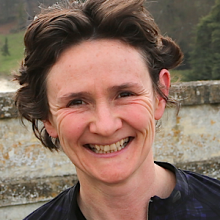Advanced neuroimaging techniques provide an unprecedented opportunity to explore the underpinning neurobiology and brain network activity that relate to our basic sensory experiences, such as vision and taste, our control of motor behaviour and decision-making, but also other characteristics that arguably define what it is to be a conscious living animal.
For the past twenty years, we have used such techniques to explore how the human brain perceives pain and how this fundamental sensory and emotional experience is modulated by injury but also by changes in attention, expectation or mood. The context in which you experience pain changes it, and your expectation or beliefs about how much pain or pain relief you have powerfully changes the experience.
In this talk, I will discuss several experiments that we and others have performed that highlight how beliefs about pain or analgesia (pain relief) influence the outcome. I will describe the brain bases for these phenomenon suitable to a lay audience, and I will also discuss how new concepts about how the human brain works inform our interpretation of these data. I will directly touch on how religious belief influences neural processing of affective experiences like pain and suffering.
Finally, I will describe our latest work exploring how the brain changes during deepening anaesthesia with a view to understanding the neural bases for altered states of consciousness and how this informs our understanding of brain function and belief states.





